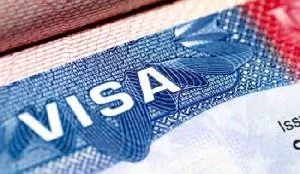
The visa ban on Nigeria has emerged as a critical issue in international travel and diplomacy. Over the years, various countries have imposed visa bans or restrictions on Nigerian passport holders for different reasons. This article examines the countries that have at one time or another, enforced a visa ban, shedding light on the reasons behind these decisions and their implications.
1. Turkey's Visa Policy for Nigerians
Turkey's implementation of a visa ban marked a significant change in travel procedures for Nigerian nationals. This policy required Nigerians to undergo a more stringent visa application process, reflecting Turkey's response to security concerns.
2. United States' Historical Visa Ban on Nigeria
The United States, under the Trump administration, included Nigeria in its expanded travel restrictions. This visa ban, part of a broader immigration overhaul, significantly affected Nigerian travelers until its reversal in 2021 by the Biden administration.
3. United Arab Emirates' (UAE) Visa Ban on Nigeria
The visa ban by the UAE was a notable development in the two countries' diplomatic relations. This ban led to a halt in processing all visa applications from Nigerians, a move influenced by diplomatic tensions between the UAE and Nigeria.
4. United Kingdom's Tightened Immigration Policy for Nigeria
The United Kingdom, known for its stringent immigration policies, also imposed restrictions that formed a de facto visa ban on Nigeria. These measures were part of efforts to curb net migration and impacted Nigerians, particularly regarding family visas for international students.
5. Seychelles' Approach to Restricting Nigerians
Seychelles, an island nation, also implemented a visa ban. This decision barred Nigerian passport holders from obtaining short-term visas or vacation stays in the country, reflecting a cautious approach to immigration and security concerns.
The visa ban on Nigeria, whether currently in place or enforced in the past, underscores the complex nature of international travel and diplomatic relations. Each country's decision to impose such a ban has been driven by unique factors, ranging from security concerns to broader immigration policy shifts. For Nigerians and the global community, understanding these bans is essential for navigating the ever-changing landscape of international travel.

















Comments